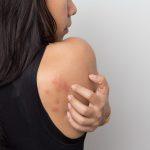In this blog, Dr. Brandon Coakley, FAAD, FACMS, Waccamaw Dermatology Skin Cancer Institute’s board-certified, fellowship-trained Mohs Surgeon, and Elizabeth Watson, Certified Nurse Practitioner and Mohs & Plastic Surgery Clinical Provider Lead, discuss the need to match cancer treatment to the person, how each treatment works, scientific advancements, and more.
What is the overall benefit of individualized cancer treatment?
Here at Waccamaw Dermatology Skin Cancer Institute, we don’t believe in a one-size-fits-all approach. Every person has a unique cancer and situation. Utilizing a variety of treatment options places the patient at the forefront of medical decision-making, so we can match the treatment to the individual. As a Board-Certified Mohs Surgeon, I treat and cure thousands of skins cancers with Mohs Surgery every year. Beyond surgery, other treatment options include topical treatments, radiation, intralesional injections, immunotherapy, and more.
How do topical treatments differ from other methods in addressing skin cancer, and what are the key benefits associated with their use?
When appropriate for a low-grade, superficial cancer, a topical treatment can be a less invasive way to treat. With topical medicine, you don’t have to worry about surgical scars, infection risk, or bleeding risk, which are always considerations for surgical treatment. There are a few different types of prescription medication creams that can be applied to the area of concern. Talk with your provider about the best option for your situation.
Can you elaborate on the effectiveness of intralesional injections in treating skin cancer lesions, and what types of patients might benefit most from this approach?
Intralesional injections are appropriate for a specific subset of less aggressive skin cancers, such as keratoacanthomas on the lower leg. It is an injection of chemotherapy that goes directly into the skin cancer, but doesn’t cause traditional chemotherapy side effects like hair loss and an upset stomach. Based on studies, the cure rates for these injections are around 70-80%, plus you can always try to repeat the injection if it doesn’t work the first time around. This may be a reasonable option for a low-grade cancer in an active individual who doesn’t want to take time off from their golf game, or someone who may be concerned about wound healing issues after surgery.
What advancements have been made in immunotherapy for skin cancer, and how does it work to boost the body’s natural defenses against cancer cells?
We work with local oncologists to deliver immunotherapy for patients who aren’t surgical or radiation candidates. Immunotherapy is different from chemotherapy. Traditional chemotherapy can attack any cell in the body, including healthy ones. Immunotherapy boosts the immune system to help detect and destroy cancer cells specifically.
Can immunotherapy be used as a standalone treatment for skin cancer, or is it typically combined with other approaches for better outcomes?
Immunotherapy is often used for patients who have locally advanced (extremely large cancers) or metastatic cancer (cancer that has spread in the body). These patients often need multiple types of treatment for their cancer.
Are there specific types of skin cancer that respond better to alternative therapies like topicals, intralesional injections, or immunotherapy?
Absolutely. Your medical provider will be able to recommend the appropriate treatment options. These options depend on the specific details of your biopsy pathology report. This report comes from a special type of doctor (dermatopathologist) trained to evaluate your skin under the microscope.
What are the potential side effects or drawbacks associated with the various skin cancer treatments, and how do they compare to more conventional options like surgery or radiation therapy?
Every treatment option has positives and negatives. We will counsel you on your individual risks and benefits depending on the most suitable option. Surgery has the best cure rates and is considered the gold standard for the treatment of skin cancer. In addition, I personally train each of our medical providers in surgery.
How does Waccamaw Dermatology Skin Cancer Institute determine the most suitable alternative treatment for an individual patient, considering factors such as cancer type, stage, and overall health?
We try to look at every aspect of your health and the individual cancer. We will consider your age, health conditions, medications, activity level, and lifestyle when choosing the best treatment option.
If you’re experiencing any skin changes, such as lesions, scaly patches, discolorations, bumps or lumps, sores that don’t heal, changes in moles or birthmarks, or anything else that causes you concern, reach out to Waccamaw Dermatology Skin Cancer Institute. We can help determine what the issue might be and offer superior care. Learn more at our website.






